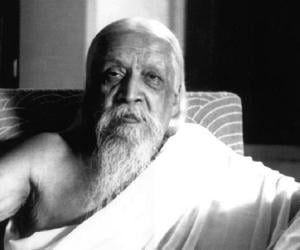Know Everything About Henry Louis Vivian Derozio

Derozio was born in Kolkata on the 15th of April 1809 and was one of the prominent figures in India's awakening. However, his name has slipped into oblivion among mainstream historians. On his 215th anniversary, one would reminisce about his fundamental role in the genesis of modern education and progressive thought during the Bengal Renaissance.
Early Life and Education

The eldest child of Francis and Sophia Johnson Derozio, Henry was of Eurasian descent, his family name having originally been “do Rozário.” Derozio entered the David Drummond Dharmatala Academy at the age of six and remained there until he was fourteen. It was a rather novel kind of educational institution, with a free admission policy-for students of different races and social backgrounds. This early experience with a heterogeneous society very much formed his egalitarian thoughts. During his juvenile years, a great love of poetry took deep root in his heart, and, inspired by the Romantics—Wordsworth, Byron, Shelley, and Keats in particular—he began to craft his creative productions.
Literary Career and Journalism

He left school at fourteen and worked for his father and then with his uncle in the indigo business at Bhagalpur. The natural beauty of the Ganges River impressed his fancy, and he wrote poetry, which finds its first publication in the India Gazette. By 1825, his poems were being published in several well-known newspapers and journals.
At 18, his work caught the attention of editor John Grant, who published his poems and invited him back to Kolkata. Derozio soon became Grant’s assistant editor and contributed to various publications. He also launched his own paper, The Calcutta Gazette, using it as a platform to voice his progressive ideas.
Educator and Social Reformer

In 1826, at just 17, Derozio joined Hindu College as an English and History teacher. His dynamic teaching style encouraged critical thinking and debate, challenging rigid societal norms. In 1828, he helped students form the Academic Association—a club where they engaged in open discussions on literature, philosophy, and social issues.
This was a time of social ferment in Bengal, with Raja Ram Mohan Roy’s Brahmo Samaj questioning traditional practices. Derozio’s students, inspired by his teachings, began advocating for reforms in areas like women’s rights, education, freedom of speech, and justice. These students—later called the “Young Bengal” group—were instrumental in shaping early nationalist thought in India.
However, his progressive views faced backlash. Parents and conservative society were uneasy with his forthright discussions on religion and reform. In 1831, he was dismissed from Hindu College, shortly before his untimely death from cholera.
Legacy
Despite a short life, Derozio’s influence was profound. Through education, writing, and reformist ideals, he helped ignite a movement that encouraged independent thinking and challenged orthodoxy. The Young Bengal movement, born from his classroom, carried his legacy forward in law, journalism, and social activism. His ideas on liberty, equality, and rational inquiry continue to echo in India’s modern democratic framework.
Henry Louis Vivian Derozio may not always receive the recognition he deserves, but his contributions remain foundational to India’s intellectual and social evolution.



